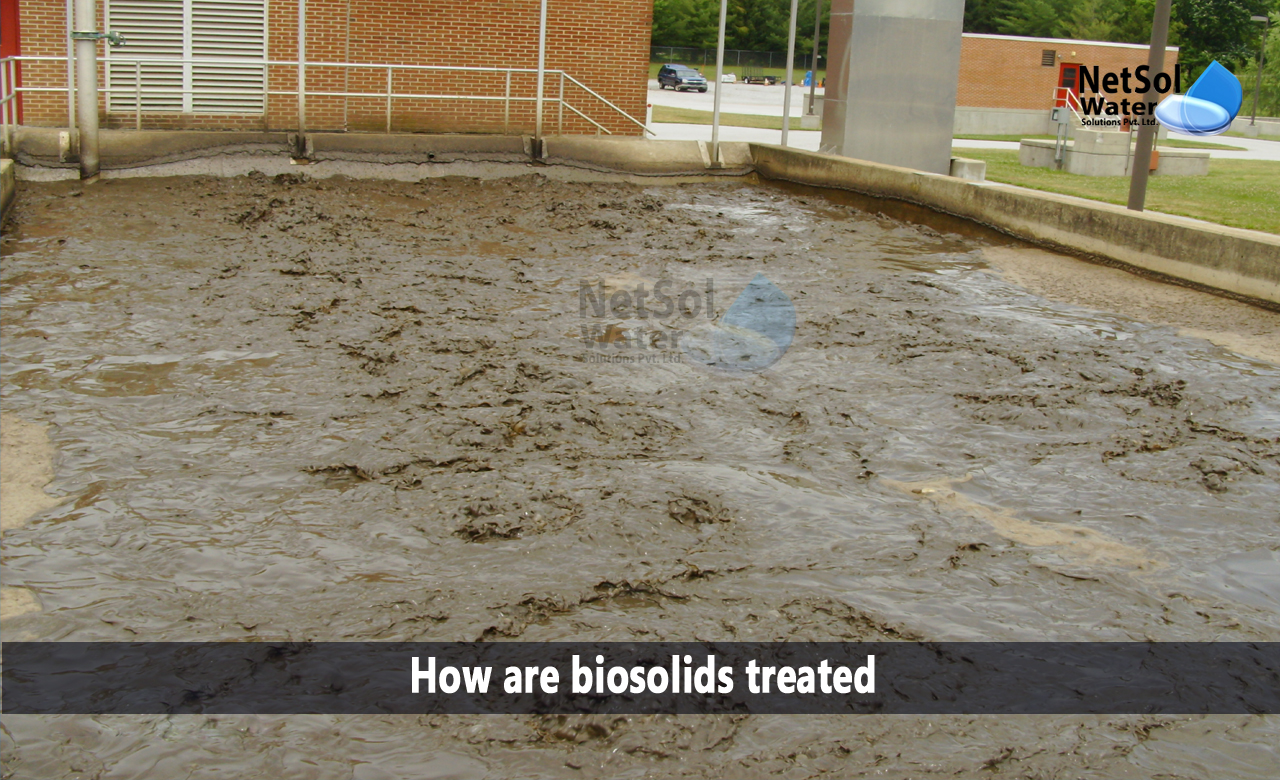How are biosolids treated?
Biosolids processing is the process of preparing sewage biosolids for reuse. In cases when recycling biosolids to land is an option, the goal of biosolids processing is to reduce the volume of biosolids, as well as the number of pathogens and produce a stable product.
A secondary objective is to produce biogas for energy production or to recover usable materials, like phosphorus. For these uses, biosolids can be treated in a variety of methods, although, they all often entail thickening, dewatering, and a process like anaerobic digestion, composting, or thermal treatment.
Now, let’s understa?nd the treatment of biosolids!
· Thickening
This can happen before digestion and dewatering processes, as well as after those processes. Thickening is necessary to lower the amount of biosolids produced during the treatment of wastewater.
The size of the treatment facility and available space are typically determining factors, in the choice of thickening method. Processes for thickening biosolids that are often utilized include, dissolved air flotation, rotary drum thickening, and centrifuge thickening, albeit the latter is less typical.
Often, thickening yields between 2 and 8% dry solids (DS), and after dewatering, typically between 20 and 35% DS.
· Dewatering
Remaining biosolids are dewatered before being disposed of permanently. It's crucial to dry and dewater the biosolids because they still contain a lot of water. This procedure can be carried out using a variety of techniques.
Biosolids-drying beds are one popular technique, albeit it can be time-consuming. Centrifuges, rotary drum vacuum filters, belt filter presses, screw presses, and other solid-liquid separation equipment are alternatives.
The centrifuge process makes it possible to extract the water, and makes it possible to handle solid waste more easily in less time and at a lower cost. Additionally, polymers primarily based on poly-acrylamide can be introduced, as flocculation aids to help increase dewatering.
· Digestion
Biosolids can be broken down into smaller pieces via anaerobic digestion (without oxygen), which also produces biogas. With utilities having to deal with increasing amounts of biosolids production, and disposal challenges due to costs and regulations, this application may be helpful.
Methane can be produced from organic matter by anaerobic microorganisms, during anaerobic digestion. Mesophilic (36°C) and thermophilic (50 or 55°C) digestion are the two main alternatives, and both have an effect on the biogas yield.
· Biosolids pump
Biosolids can be transported across a site in a more liquid condition, and is pumped between treatment stages.
Pumps for dry or submersible wastewater that are specially made to pump liquids, with a high particles content are needed for biosolids pumping. The pumps are made to prevent clogging by the slurry, and biosolids content when pumping viscous liquids with varying proportions of solid particles.
It is crucial that these pumps be not negatively impacted, deteriorated, or obstructed. Many pumps are made for heavy-duty centrifugal pump applications, where debris limits the use of normal centrifugal pumps because they have to pump water, including materials like gravel and silt.
Additionally, a powerful mechanism is required to pump biosolids because they can be heavy, and can also contain volatile and caustic materials. When biosolids are settled, coarse particles develop, creating an unstable combination. It's crucial to choose the right pump because pumping calls for a certain amount of flow and power. Fine particles with minimal wear characteristics make up non-settling biosolids.
Conclusion
For local authorities and operators, the growing amount of biosolids generated by wastewater treatment, in tandem with population growth and urban sprawl, is a major source of concern. Biosolids treatment is now required in order to recover products and reduce volume.
For further information or to make a purchase of advanced water and wastewater treatment plants, please contact us at +91-9650608473 or enquiry@netsolwater.com



